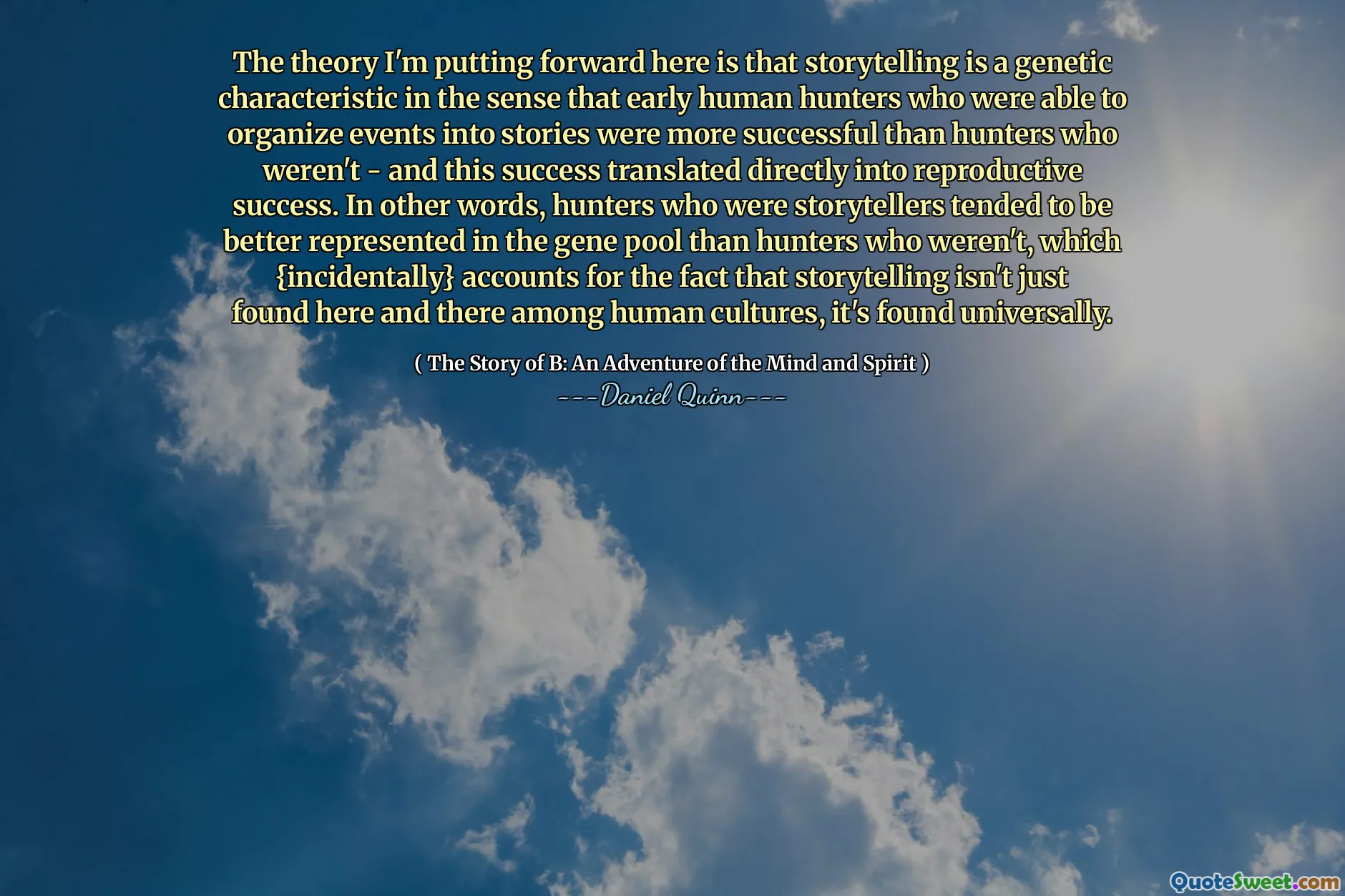
The theory I'm putting forward here is that storytelling is a genetic characteristic in the sense that early human hunters who were able to organize events into stories were more successful than hunters who weren't - and this success translated directly into reproductive success. In other words, hunters who were storytellers tended to be better represented in the gene pool than hunters who weren't, which {incidentally} accounts for the fact that storytelling isn't just found here and there among human cultures, it's found universally.
This quote highlights an intriguing evolutionary perspective on storytelling, suggesting that the ability to craft and share stories may have been rooted in our very genetics due to its survival advantage. By framing storytelling as a biological trait that conferred reproductive benefits, the idea implies that those early humans who could mentally organize events into narratives were better equipped for cooperation, social bonding, and transmitting crucial survival knowledge. Such skills could enhance group cohesion and increase hunting success or resource sharing, thereby boosting reproductive success. The universality of storytelling across cultures underscores its importance in human development, communication, and cultural evolution. It reveals how deeply embedded storytelling is in our species—not merely as a social or artistic practice but potentially as an evolved trait essential for our survival. Considering storytelling as a genetic trait empowers us to appreciate its profound influence on our cognitive evolution and social structures. It also prompts reflection on the role of narrative in shaping our perceptions, identities, and even our understanding of reality. As human societies have grown increasingly complex, storytelling remains a vital tool for education, entertainment, and cultural continuity, reinforcing the idea that stories are much more than just entertainment—they are an integral part of what makes us human.






